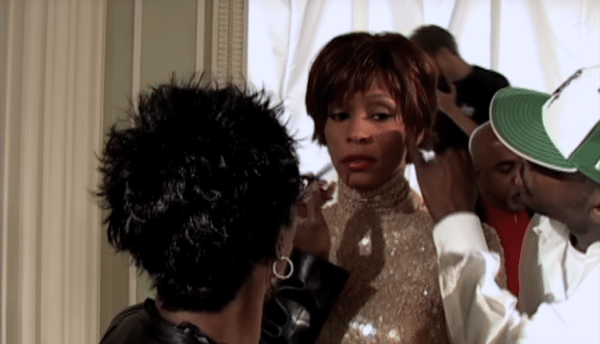Whitney, 2018.
Directed by Kevin MacDonald.
SYNOPSIS:
An in-depth look at the life and music of Whitney Houston.
Before her death in 2012, Whitney Houston had become a punchline to a bad joke and her career had nose-dived after years of drugs and tabloid scandals. Her phenomenal voice had been forgotten. Following her death, people seemed to remember the huge talent that she had and her diverse career. In this intimate documentary by Kevin MacDonald (The Last King of Scotland, Touching the Void, Christmas in a Day) he takes us on a journey from her humble upbringing to mega stardom and the fall from the top.
No dark aspect of Houston’s life is left off the table during the 2 hour run time. Told via archive footage and interviews with family, friends and colleagues they give an overview of Houston’s sheltered life away from the ghettos of Newark and her Mother’s desire to have Houston become a star – something she was never able to achieve. At one point, a close family friend is asked if anything happened in Whitney’s childhood that led to her drug use and she is adamant that Houston had an idyllic childhood. The subject is dropped and the documentary moves on in the timeline of her life. It’s only towards the end of the film that this subject is revisited and there are allegations of child sex abuse which are horrific and upsetting to hear. By framing this aspect of Houston’s life in such a way, we see another dimension to her story and are able to make more sense of the choices she made and what she may have been dealing with.
Discussions about drug use are open and brutally honest, with Houston’s brothers talking about how they scored drugs in different countries, when she was first introduced etc. This type of candour brings realism to the documentary and makes you feel that you’re getting a warts and all picture of Houston’s life. Ex-husband Bobby Brown – who many blamed for her descent into addiction – does allow himself to be interviewed but only on his terms. As soon as drugs are mentioned he refuses to discuss it and is not seen in the rest of the documentary. His silence says more than any interview could and it’s a wise choice from MacDonald to include him.
MacDonald shows footage of numerous Houston performances throughout the film. Starting with her electrifying first TV appearance and (other than over the final credits) her final live performance where she struggled to sing “I Will Always Love You” we see the highs and lows. As much as Whitney is a dissection of the life behind the tabloid gossip, it is a celebration of her musical career and all of her classics are shown. There’s a clear feeling of respect for her talent and her story.
Tapes of Houston with family and friends and candid interviews help to support the narrative of her emotional struggles. However, there are only small fractions of Houston’s own words spoken throughout. Viewers are left to make up their own minds and rely on second hand accounts to assess what her mental state was and why one event led to another. It doesn’t affect the impact of the film but it does leave a lot open to interpretation.
The most notable absence from the interviewee list is Houston’s closest friend for a number of years – Robyn Crawford. Mentioned throughout the documentary as Houston’s confidant; her decision not to appear in the documentary robs audiences of a different perspective on the events that shaped this one of a kind star.
Flickering Myth Rating – Film: ★ ★ ★ ★ / Movie: ★ ★ ★ ★
Helen Murdoch













